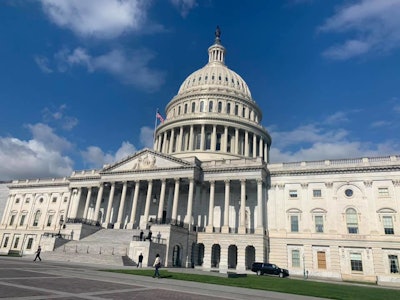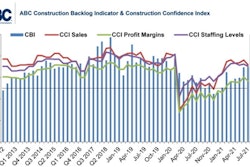
The Senate has approved a $1.2 trillion infrastructure bill with $550 billion in new spending, covering roads, bridges, water infrastructure, freight rail, transit systems, the electric grid and broadband. After the infrastructure package passed, the Senate also passed a $3.5 trillion budget resolution spending plan.
This budget resolution seeks to expand paid family and medical leave, make child care more accessible, create universal pre-K and tuition-free community college, and extend enhanced household tax credits passed during the coronavirus pandemic. It also recommends lowering the Medicare eligibility age and expanding benefits to include dental, vision and hearing.
The measure also calls for expanding green energy and curbing climate change through business tax incentives, consumer rebates and polluter fees.
This vote marked the first step in the budget reconciliation process, which will allow Democrats to approve their plan without a Republican vote in the Senate split 50-50 by party. Democrats see the bipartisan plan and their reconciliation bill as complementary planks of an agenda that aims to create jobs, slow climate change and strengthen the social safety net. The GOP has united against the proposal and the tax increases on corporations and wealthy individuals that Democrats have proposed to use to pay for it.
What's Next for Infrastructure Funding?
Now, the work goes to The House of Representatives where both bills await an uncertain future.
House leaders took the unexpected step of cutting their seven-week recess short and lawmakers will return to session on Aug. 23, about a month early, to consider the larger Democratic package. The House will need to approve a budget resolution before Congress can craft and pass final legislation.
Speaker Nancy Pelosi (D-CA) has said the House will not take up the infrastructure or reconciliation bills until the Senate passes both of them. Moderate Democrats want a quick vote to notch a big bipartisan win. Liberals want to sit on the bill until the Senate passes the larger social benefits package, a tactic that Pelosi has enthusiastically endorsed. According to The Hill, "powerful voices" are urging the Speaker to reject the Senate infrastructure bill as it stands, and force conference talks between the two chambers.
After the Senate passage of the bill, Pelosi praised lawmakers for passing the bill, but quickly emphasized that it falls far short of what Biden and congressional Democrats intended when they launched their infrastructure push, and she dismissed calls to vote on infrastructure before the details of a reconciliation package emerge.
“Reconciliation will be a fuller reflection of our values,” she said.
Once the House returns to work, debate will officially begin again. Congress likely will not pass either bill anytime soon meaning it won't receive a signature from President Biden for weeks or even months.




















